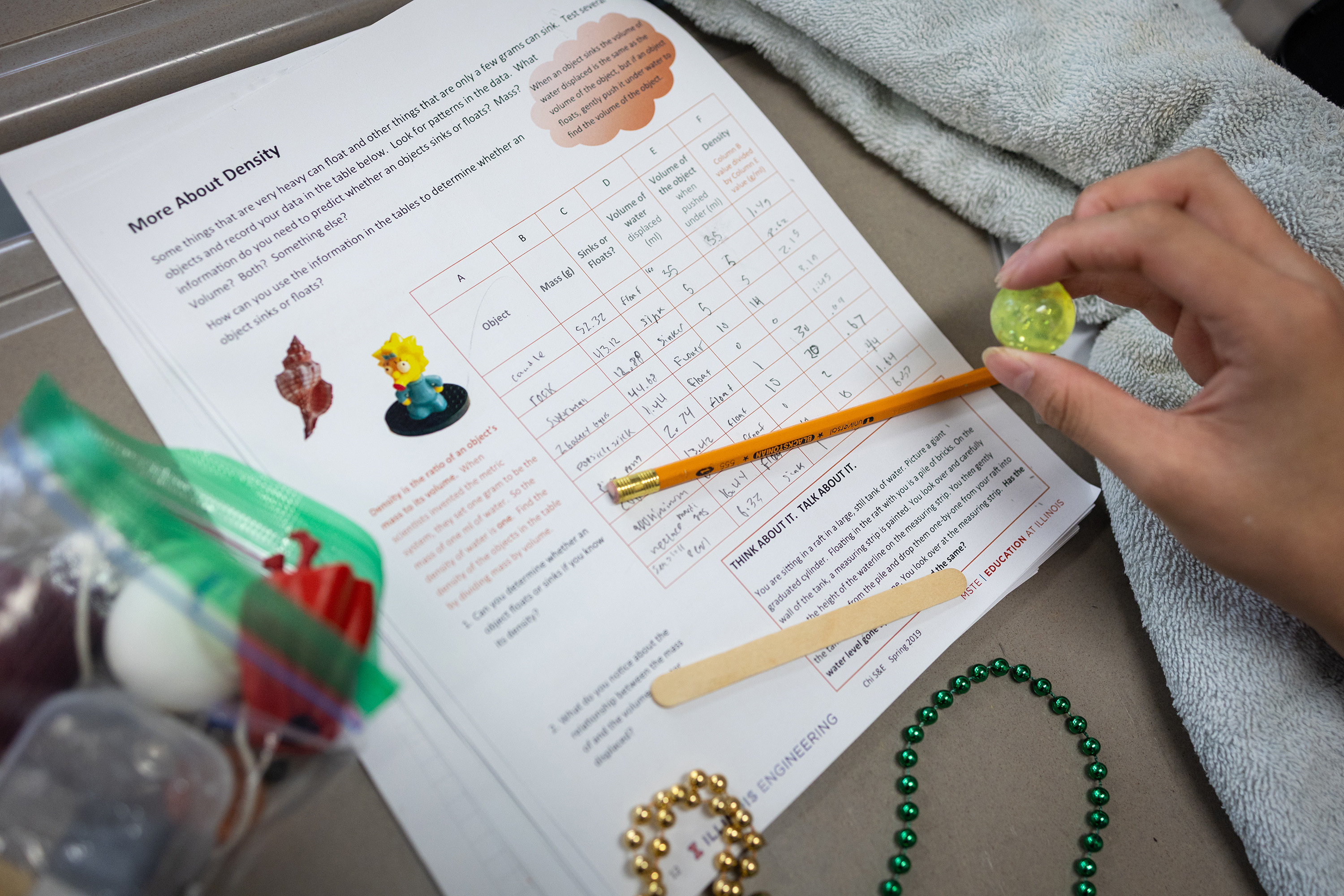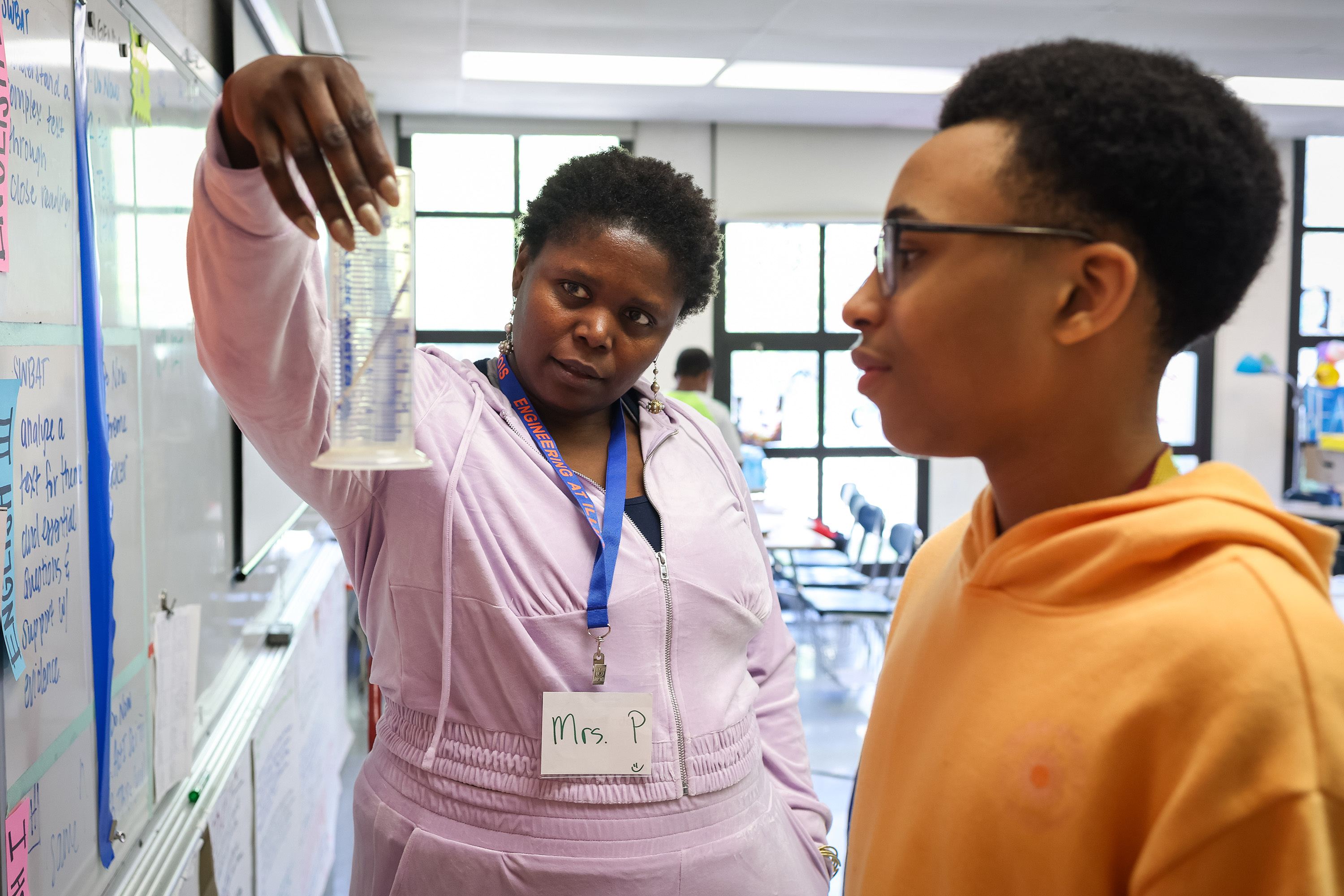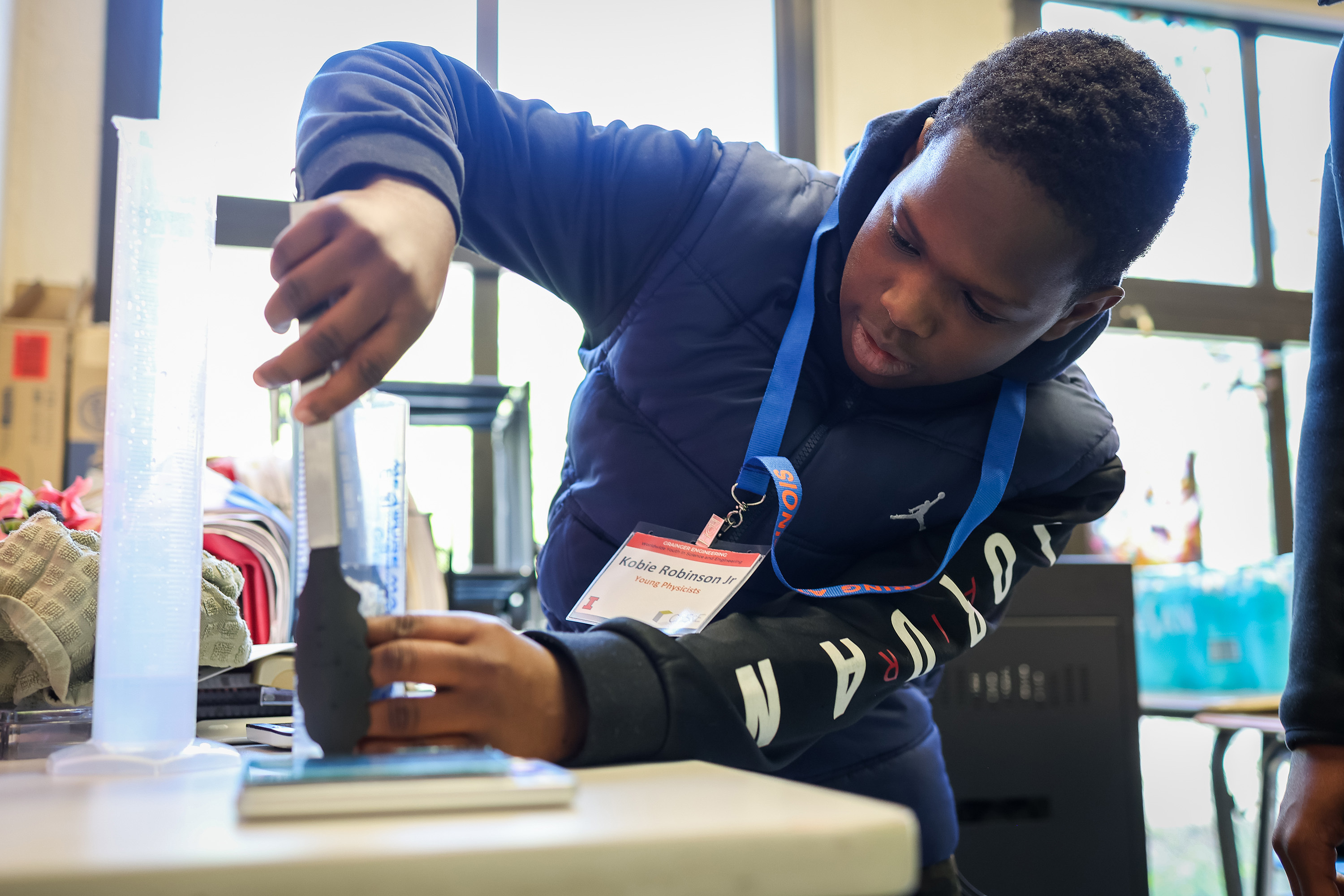Chicago's Game-Changing Program Propels Young Minds to STEM Success

CHICAGO — Soyini Walton mentioned that during her upbringing in Chicago's Englewood area, she found herself steered towards transcription and stenography courses, observing as her male counterparts casually discussed algebra and carried around slide rules.
She has always been more inclined towards science but mentioned that she didn't have the opportunity to follow this path. When she was 11 years old, she recalls discovering a deceased bird and, driven by curiosity, slicing it open using her father's razor.
Walton mentioned, “No one actually asked, ‘What truly excites you? ’ because you likely have the freedom to choose from almost anything.”
For many years during her twenties, she was involved in teaching before she decided to further develop her understanding of mathematics at Richard J. Daley and Kennedy-King colleges located on Chicago's Southeast Side.
At nearly 80 years old, she continues to set an inspiring example by teaching Earth science and algebra courses through the Chicago Pre-College Science and Engineering Program, commonly referred to as ChiS&E. This non-profit organization provides supplementary classes on weekends and during summers aimed at stimulating and encouraging historically underrepresented students' interests in pursuing scientific careers.

The initiative commenced operations for first graders in 2009 and has progressively grown each year. Currently, ChiS&E partners with more than 40 educational institutions—including both public and private schools—throughout Chicago. What sets this program apart is that it mandates parents or guardians to attend sessions alongside their children up until the fifth grade. As reported by the organizers, since its inception, the program has benefited a total of 3,972 pupils.

The complimentary courses focus on family-centered activities and stress math skills via initiatives like bridge construction and computer coding, dismantling systemic obstacles including restricted access, economic limitations, and scarcity of representation in higher-level classes.
Although a 2021 Pew Research report highlighted "significant" increases in the number of graduates in science, technology, engineering, and math fields from higher education institutions since 2010, African American and Latino individuals remain disproportionately underrepresented as STEM degree holders relative to their presence within the overall populace. According to this research, Black employees account for 11% of working adults generally, yet they represent only 9% of people engaged in STEM roles. Similarly, Hispanic staff constitute 17% of all jobs across various sectors; however, they comprise merely 8% of personnel in STEM professions.
The framework for ChiS&E is based on a Detroit initiative that started in the 1970s in a basement at the University of Michigan, according to Kenneth Hill, who serves as the organization's president and CEO. This Detroit program has engaged tens of thousands of students over the years.
Hill boasts a broad and varied teaching experience, which includes his tenure with the Detroit public school system prior to relocating to the Republic of Zambia in Africa. There, he instructed high school students in advanced subjects such as calculus and physics.
This might be a compact initiative, but we will achieve our goals," Hill stated, scanning the room filled with students assembled at Kenwood Academy High School on a recent Saturday morning. "The quality here is exceptional.
ChiS&E's courses extend beyond typical educational programs, according to Iyabo Pommells, aged 41, a previous math and science instructor who oversees the Saturday physics session at Kenwood. This approach diverges from conventional introductions to STEM subjects, as noted by Pommells.
"There's plenty of time. There's ample opportunity to ask questions and engage with others," stated Pommells, who works full-time for the city of Chicago.
Walton, who refers to Pommells as her "protege," observed as she drew a table on the chalkboard at the front of the classroom to plot the densities of various substances and determine whether they would float or sink when submerged in water.
"Is there anything else you observe? What do we ponder?" she questioned the class of middle-school students.
Pommells mentioned that she realized her passion for math and science during her high school years and found inspiration from Walton, who is a close acquaintance of her family. She earned a degree in mechanical engineering from the University of Michigan and obtained another degree in mathematics from Spelman College located in Atlanta.
Watching another African American woman accomplish that demonstrated to me that it was achievable and that I could also do it," she stated. "There were numerous occasions, particularly during my time at university, when I was among the handful of females or Black individuals in the classroom.
However, ever since she was young, her self-assurance in her own capabilities led her to say that she believed "no matter which room I walked into, I could accomplish anything."
Gema Ramos, who goes to Eli Whitney Elementary in Little Village, mentioned that both she and her parents have participated in the program ever since she was in kindergarten. At 13 years old, Ramos aspires to become a doctor.
"I appreciate how we discover topics that aren't covered in school," Ramos commented about ChiS&E.
Tori Williams, who is 49 years old, mentioned that parents also gain knowledge from attending classes. She participated in the program alongside her 13-year-old son, Drelyn.
“She mentioned that those classes helped her grasp the significance of science in gaining a solid understanding of how the world functions.”
Drelyn managed to get admitted into a prestigious school in Chatham and has advanced a grade level in mathematics. His mother mentioned that he recently decided he wants to pursue a career as a computer engineer.
The ChiS&E program motivated Williams, who serves as the principal at Parkside Community Academy in South Shore, to pursue a separate $700,000 grant from Chicago Public Schools with a concentration on STEM subjects. According to Williams, these funds were utilized to construct innovative areas and scientific laboratories.
ChiS&E alumni have pursued careers in fields such as nuclear engineering or psychology at institutions including Yale University, Purdue University, Howard University, and Spelman, according to Jeffrey Johnson, who serves as the program’s chief operating officer.
A solid base in mathematics instills confidence in youngsters," Johnson stated. "It prepares them to be competitive, gain admission to leading colleges and universities, and excel in top sectors.
The nonprofit depends on charitable contributions and collaborates financially as well as programmatically with the University of Illinois Urbana-Champaign and Argonne National Laboratory.
One recent Saturday morning, Walton greeted the students with a smile as they presented the outcomes of their experiments to Pommells. She had seen Pommells develop into an engineer right before her eyes.
Walton voiced some reservations regarding the program’s objectives amid President Donald Trump’s criticisms of diversity, equity, and inclusion initiatives.
"Although we've received support from various foundations, everyone is feeling the impact of these alterations," she stated.
Before launching her own engineering firm, she worked as a mechanical engineer for the city during Mayor Harold Washington's tenure.
However, she mentioned that she needed to ascend in order to reach her current position.
“If I had access to a program like ChiS&E during my upbringing, I would have progressed much faster,” she stated. “Currently, the program remains relatively unknown. Our aim is for more individuals to become aware of it.”
___
©2025 Chicago Tribune. Check us out at chicagotribune.com. Distributed by Tribune Content Agency, LLC.